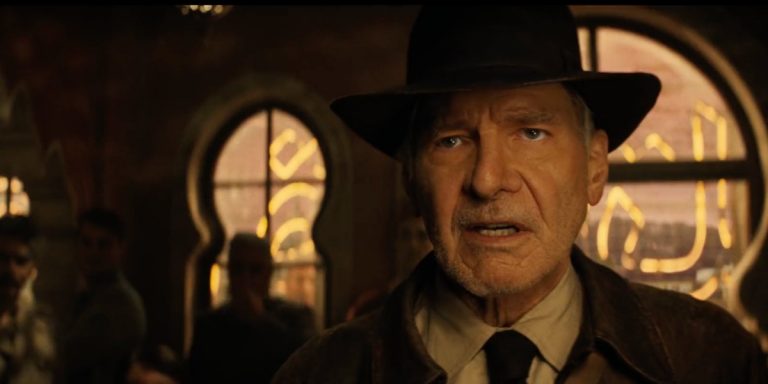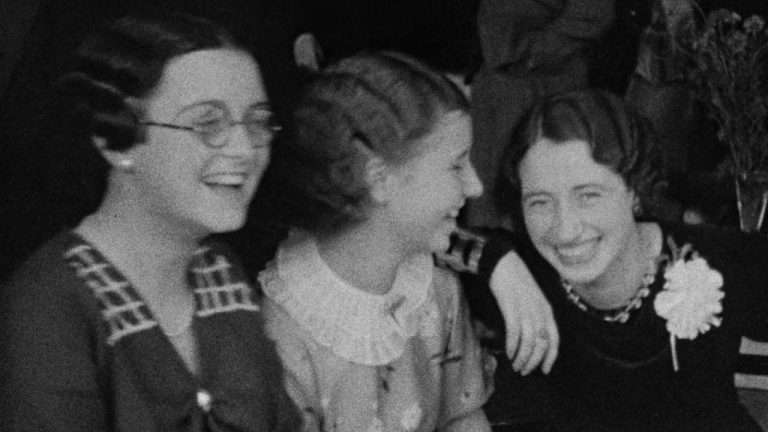Dig (2022), set in Las Cruces in New Mexico, is quite a simple film, but saying that it lived up to its title is a tad too much. As the titular activity, audiences may commence watching this movie with the expectation of a considerable amount of the 87 minutes devoted to the same. However, that isn’t the case. If one tends to go deep, Dig can be associated with the protagonists looking to dig deep and find that inner strength, to rediscover that understanding with each other that had gone. Is that what we are supposed to do with every film? Cause, to be quite honest, Dig (2022) is a bland offering that could have ended in about 45 minutes, even if there were clues as to why it did not. The biggest one comes at the start credits – it works as a launch vehicle.
Starring Thomas Jane, Harlow Jane, Emile Hirsch, and Liana Liberato in pivotal roles, Dig focuses on a father-daughter duo of Brenan and Jane (Thomas and Harlow Jane). They have a communication gap, thanks to some unfortunate events. Their plan to patch things up takes a detour when Brenan gets a gig. However, once there, they stumble upon a stash house and realize they are deep. Any attempts to ignore it are cast aside as the protagonists learn that Victor and Lola have set them up.
Dig is quite decent for its runtime, showing audiences why certain things have happened. K. Asher Levin’s film also discusses why certain things didn’t occur to end this situation swiftly. There is a situation at a gas station that isn’t there for the sake of it. A scene with a drifter also proves pivotal, but audiences may wonder what prevented the one character from making good use of their gift. It’s pretty good to see that there is no redemptive arc for the villains. For them, this is a classic distinction between good and bad. This one features the classic all-evil baddies, who get much more despicable with each passing second.
After seeing these moments while watching the climax, one could find fault with the writers for not making Victor and Lola much more of a physical threat. They seemed challenging (a facade), but the showdown was a disappointment. One could even believe that with the tools Brenan and Jane had at their disposal, they could have just sprung a sneak attack on their captors. I understood this creative choice as it ensured that the good guys remained good until the end when desperate times called for desperate and decisive measures. It could even help audiences comprehend Brenan’s choice right at the start, as he is an indestructible human being.
While some of the writing may have provided reasonable doubt to any questions, other things remained extremely questionable. Why were the trio needed at the house if the villains wanted to dispose of them immediately? What was the point of the external examiner combing the house to mark lines? It isn’t factually wrong, but that attempt to build tension went up in smoke. Also, why did Brenan and Jane not flee properly? It was just plain stupid.
Another issue I have with Dig (2022) is that its background music is way too loud, even drowning out the relatively peaceful dialogue between the catholic family. Agreed that some of this may not have impeded the audience’s comprehension of the story, but it wasn’t very pleasant. This improves as the film proceeds, with everything clicking once the villains discuss the need to eliminate the father-daughter duo. There are whispered dialogues, and a slight tempo rise in the beats lent that tense feel to the situation. It represented the tense heartbeats of the characters as they tried to convince their captors to let them keep breathing and await their fate. They didn’t need the BGM, as Liberato and Hirsch’s characters were quite loud and annoying.
One would rather rewatch modern westerns than spend time in this film as it isn’t thematically deep unless one is desperate to find some meaning from it. Even if a movie isn’t meant to be laced with themes, mindless action for the fight buffs is also lacking. If one does watch this, they may depart with the following thought – I’ve seen that one before.




![Border [2018] Review: A Modern Folktale About Empathy](https://79468c92.delivery.rocketcdn.me/wp-content/uploads/2019/04/border-publicity_still-border_window-04-h_2019-768x433.jpg)



